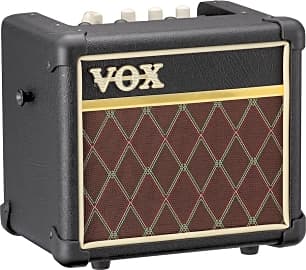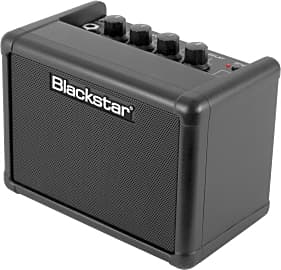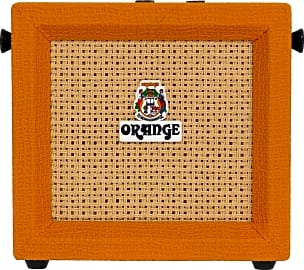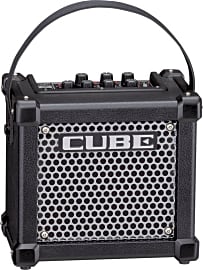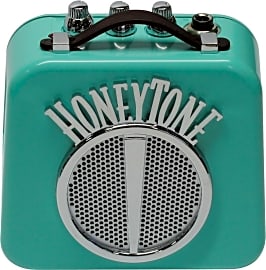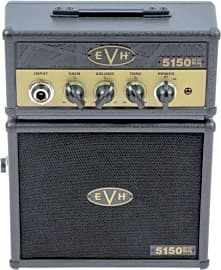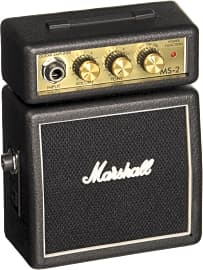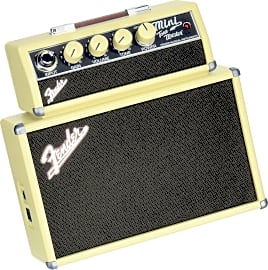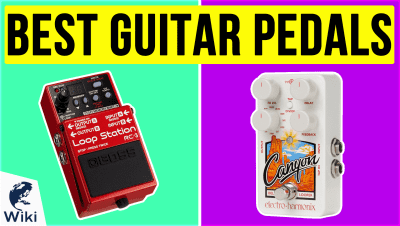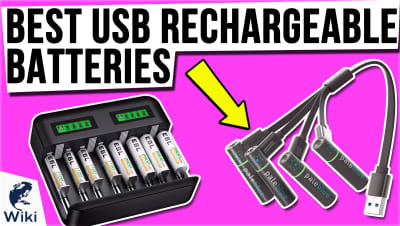The 10 Best Battery Powered Guitar Amps

This wiki has been updated 31 times since it was first published in December of 2017. Every musician has to start somewhere, whether that's entertaining patrons in a coffee house or busking on a street corner. But to play somewhere that doesn't have any electrical outlets, you'll need one of these battery-powered guitar amps. Some are small and portable enough to slip into a backpack or your guitar case, and we've ranked them by their sound quality, power, and built-in effects. When users buy our independently chosen editorial selections, we may earn commissions to help fund the Wiki.
Editor's Notes
December 02, 2020:
A couple of the models from our previous ranking have had some availability issues, and compared to the two new models we've chosen to replace them, they might have been on their way out the door anyhow. One of those models is the Boss Katana KTN-Mini. Now, considering the fact that this amp comes from one of the premiere names in guitar pedal design, you might expect it to be loaded with effects, but instead the company has seen fit to focus on the quality of its sound, with the addition of only a single major effect outside its two distortion channels. That's its tape delay, which does a great job mimicking the warmth and warble of old school machines that actually relied on physical tapes to create their loops.
The other new model to our list is the RockJam Busker Portable, which, unlike the Boss model, doesn't have the weight of a long-tested name behind it. If the company continues to make products like this, however, that reputation will only grow. For starters, they've seen fit to design the cab to naturally angle upward, and when dealing with lower-power amps like these, every opportunity to get those soundwaves out over a crowd is welcome. That's one of the reasons offerings like the EVH 5150 Micro Stack and the Fender Tonemaster Mini have integrated kickstands. But it's the RockJam's finishing that really impresses, as it feels sturdy and durable while being housed in one of the more attractive cabinets in its class.
April 30, 2019:
Roland's Cube ST proved to be more formidable as an all-around option than we'd previously considered, especially considering its dual 6.5-inch speakers. That made it hard for us to justifiably keep its little brother, the Micro-Cube, at number one. Taking that spot isn't the ST, however, but the little Vox option previously at number two. Given the size of these products, and the amount of power it takes to generate any kind of decent low end, it's a pleasant surprise to see the Vox offer such a nice frequency response. The EVH 5150 is no longer available in its popular ivory color, and now only comes in black, which is enough of a disappointment for us to have demoted it one slot to the number eight position.
A Lot Of Sound In A Little Package
This is especially true when you want to practice alone with your electric guitar, but you still want to hear its true tone pumping through its pickups.
Guitarists like to get loud. If you’ve ever gone home from a concert with your ears ringing mercilessly, there’s a good chance a lot of that damage was done by the guitar amps. We axmen save up big sums of money to invest in the most powerful combos, half stacks, and full stacks, with images of arena rockers playing before walls of sound shimmering sweetly in our imaginations.
If a guitarist sticks with it long enough, though, he or she will eventually come to terms with the fact that their instrument is only part of a whole, and that balance is more important than power. The best guitarists in the world don’t drown out the band, they’re part of it. So, you might find yourself downgrading to a less powerful amp that offers you a more specific tone, and being very happy with that.
But there are some situations in which you want to get some volume pumping, but you might not need to get very loud at all. This is especially true when you want to practice alone with your electric guitar, but you still want to hear its true tone pumping through its pickups. You could use headphones, of course, but these rarely create the kind of sound you’re looking for. You might also find yourself playing in a more intimate venue, where a less powerful amp would be perfect. Most amplifiers sound best when you push them a little, so setting up a Mesa Boogie Dual Rectifier in a small art gallery and playing it at a level of one or less isn’t doing service to the amp or your style.
Compound any of these situations with a lack of available outlets, and you’ll see why battery-powered guitar amps have become so popular. They offer exceptional sound for their size, they don’t get so loud that they’ll wake up the rest of the house during a solo practice session, and you can take them absolutely anywhere. Want to play a set on the boardwalk overlooking a sunset on the Pacific? Need to pick up a little extra cash from a busking session on a busy subway platform? Care to take a little amplification on vacation? These amps are the answer.
What To Look For In A Battery Powered Amp
Choosing a battery powered guitar amp will have more to do with where you intend to use it than anything else. There are other considerations, to be sure, but answering that question will significantly narrow down your search.
For example, if you know you’re going to only use this amp at home to run scales or write songs without disturbing your family, you can probably spring for one of the smaller, less powerful models out there. Players looking to use these amps more professionally, or to combine them with other musicians — including drummers, who can’t really turn down — should consider a more powerful option. Some of the higher-watt models on the market have plugs for use via AC, as well, dramatically increasing their usefulness.
One of the big drawbacks among some of the smaller models on the market is a lack of tonal controls. You may see something like a single tone or presence knob in addition to volume and occasionally a gain control, but you’ll probably have to spend a little more if you want anything like a three-band EQ, amp modeling, or more complex effects. Of course, if you’re only planning on using your new amp by your lonesome, these tonal considerations might not mean that much to you. If anyone else is going to hear you play live, or if you want to use your mini amp for a recording session, you’ll likely want as much tonal control as you can afford. Of course, you can run effects pedals to any of these options if you need, as well.
Keep a close eye on how long a given amp will last on its set of batteries, as well. Players at a beach house for the weekend will probably have access to a slew of replacement batteries, or a local store if they run out, and if the amp dies on you, you can simply go do something else with your time. Maybe read a book. If you’re in a more remote location, or if you need to perform in front of an audience, a set of dead batteries could make for a frustrating and embarrassing experience.
Other Great Accessories For The Roving Guitarist
Traveling guitarists have a lot of fun accessories they can invest in that will allow them to keep playing wherever the road takes them. Some of these are incredibly inexpensive toys, while others require a bit more investment. Over time, you might see the benefit in getting your hands on all of them.
One of the coolest little tools you can have as a guitarist is a pick punch. Lots of players lose their picks faster than they can buy them, and resorting to playing with a coin or a hand-cut pick will either prematurely break your strings or slice into your fingers. A pick punch allows you to take pre-made strips of plastic or even old credit cards, and cut them into perfectly sized picks with gentle edges that will be safe on both your hands and your strings.
If your battery powered amp is still a bit too loud for certain times of the night, you should also invest in a nice pair of headphones. An open-backed pair will create the most realistic sound stage, so the audio you create won’t feel so confined.
It’s also possible that you’ll find yourself drawn to the biggest of the amps on our list, and that you intend it for use in more professional performance settings. So, what do you take on vacation? Fortunately, there’s a whole slew of travel guitars on the market, as well, many of which actually have little speakers built right into their bodies that run on batteries. The ¼-inch outs on these instruments can run to an amplifier or to a pair of headphones, so you can easily expand their functionality


